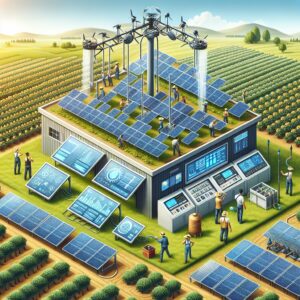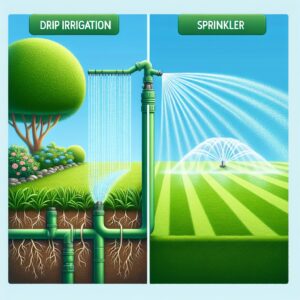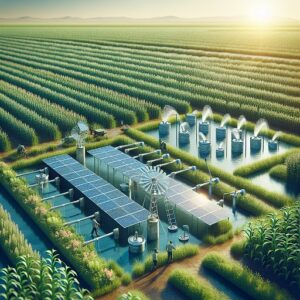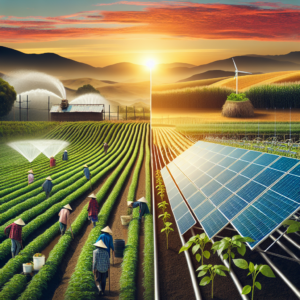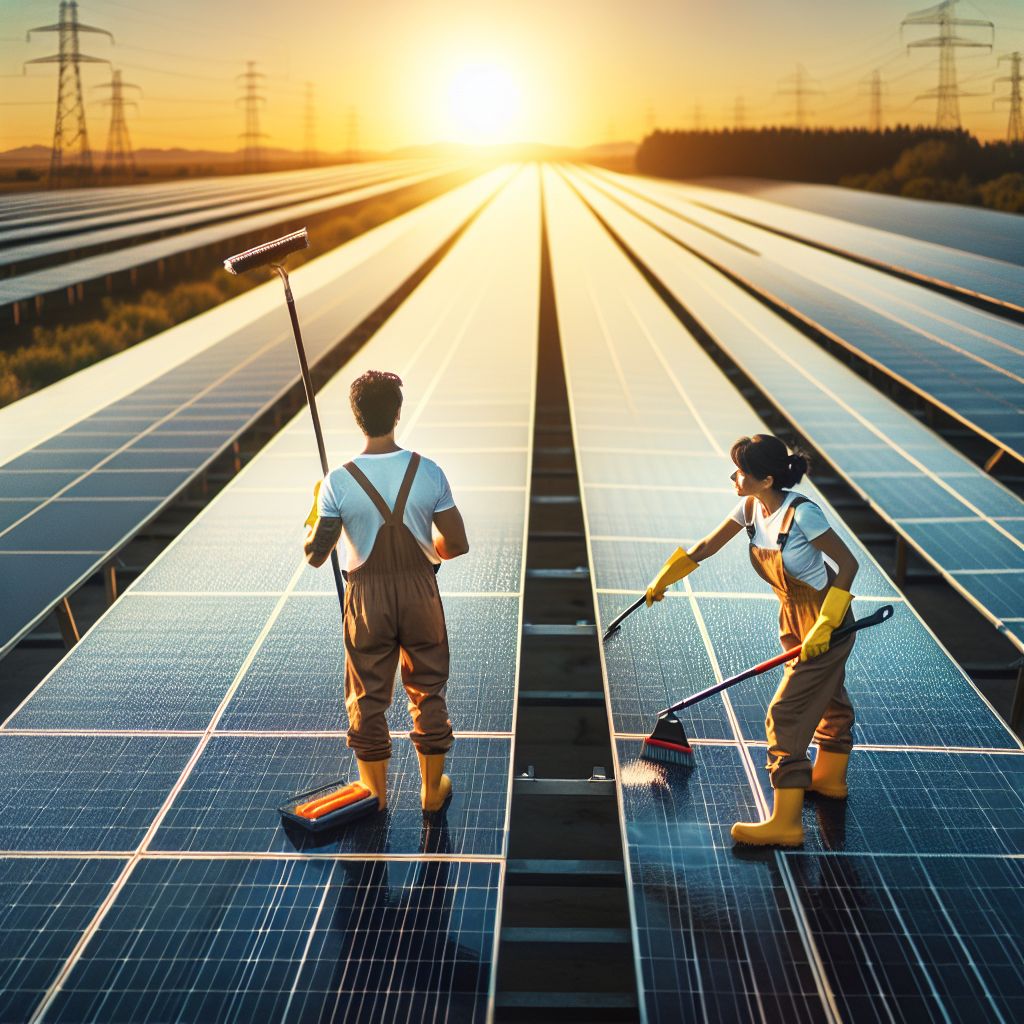
Imagine looking out over your fields, the crops are thriving, and the irrigation system is humming along, powered by the sun. That’s the dream, right? But here’s the thing: the efficiency of your solar panels is key to making that dream a reality. Dirty panels mean less power, and less power means your irrigation system might not be getting all the energy it needs. Let’s dive into how you can keep those panels clean and your farm running at peak performance.
Key Takeaways
-
Cleaning your solar panels can significantly increase their efficiency and your farm’s overall yield.
-
The best times to clean solar panels are early morning or evening to avoid hot sun that can cause streaking.
-
You’ll need a few basic tools like a soft brush, a squeegee, and a hose to clean your panels effectively.
-
Avoid harsh chemicals and abrasive tools that can damage the panels and decrease their lifespan.
-
Setting up a regular cleaning schedule can help streamline the maintenance process and ensure your panels are always operating at their best.
Now, let’s get into the nitty-gritty of solar panel maintenance and how it directly impacts your irrigation power.
Harvesting the Sun: A Guide to Pristine Solar Panels for Farms
First off, let’s tackle the question of why cleanliness is so crucial for your solar panels. It’s simple: the cleaner your panels, the more sunlight they can absorb. This means more energy is converted into electricity to power your irrigation systems. It’s not just about aesthetics; it’s about maintaining the lifeline of your farm.
Why Cleanliness Equals Power
-
Dirt, dust, and bird droppings can reduce panel efficiency by up to 30%.
-
Regular cleaning can increase power output and extend the life of your panels.
-
More power equals more water for your crops, which can lead to increased yields.
So, how do you ensure your solar panels are always in top shape? Let’s break it down.
Solar Panel Longevity and Your Farm’s Success Realize on Maintenance
Your solar panels are an investment, and like any good investment, they need to be looked after. Think of them as your silent partners in farming – they work hard for you, but only if you take care of them. Keeping them clean and well-maintained is crucial to ensuring they last as long as possible, which can be up to 30 years or more.
Most importantly, remember that a well-maintained solar panel setup is not just about the immediate boost in power. It’s about securing a sustainable and profitable future for your farm.
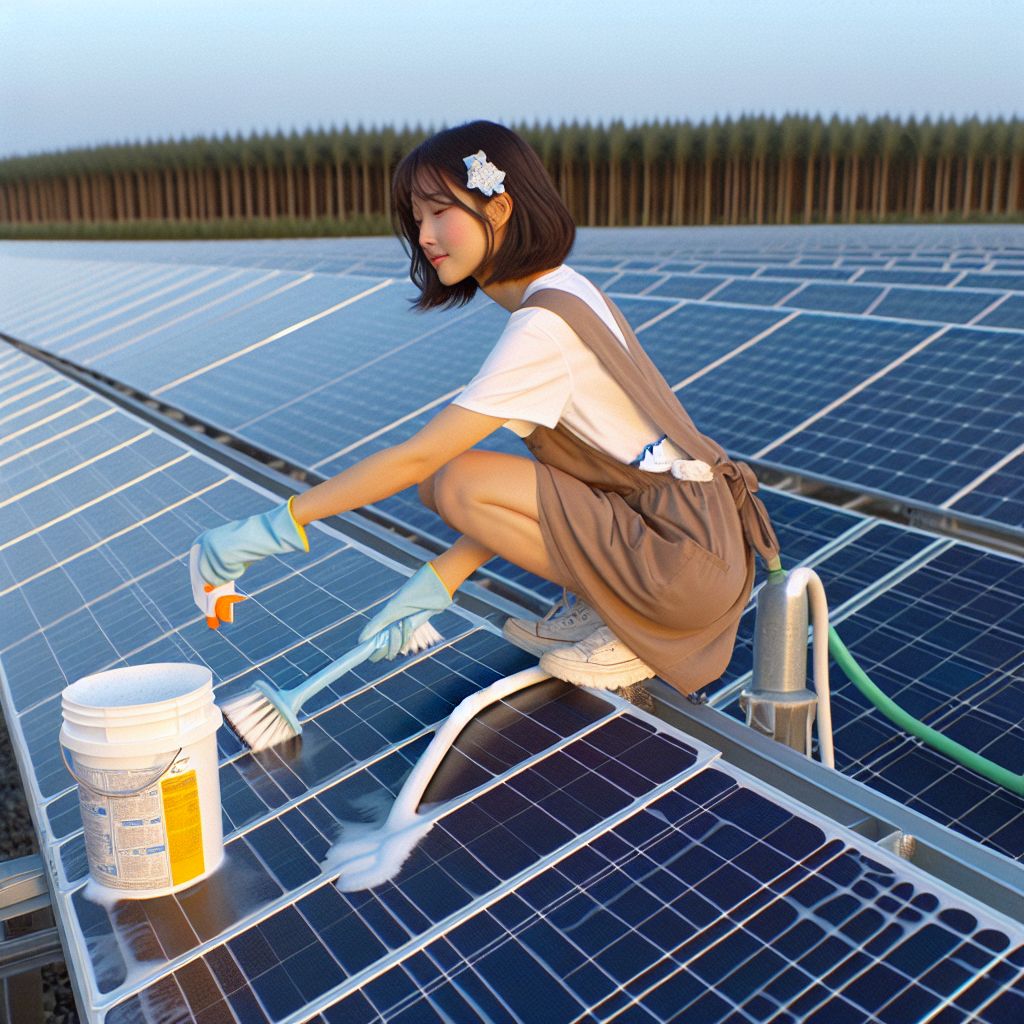
Critical Steps for Solar Panel Maintenance
Now that we understand the importance, let’s discuss how to maintain your solar panels effectively. The goal is to prevent any buildup of materials that could block sunlight and decrease efficiency. Here’s how:
Timing Your Clean: When to Tackle Solar Grime
Choosing the right time to clean your panels is crucial. You want to avoid the heat of the day because not only is it tough on you, but the heat can cause water to evaporate quickly, leaving behind residue and streaks. Early morning or late evening, when the panels are cool, is the best time for a cleaning session.
Tools of the Trade: What You’ll Need
When it comes to cleaning your panels, you don’t need fancy equipment. Here’s a simple list to get you started:
-
A soft brush or a squeegee with a plastic blade to loosen and remove dirt without scratching the panels.
-
A hose with a nozzle for gentle rinsing. If your water is hard, consider using deionized water to avoid mineral buildup.
-
A bucket of soapy water – use mild dish soap that won’t leave a residue.
Armed with these tools, you’re ready to tackle solar panel cleaning like a pro. Remember, regular maintenance is not just about keeping things running; it’s about maximizing the potential of every square inch of your farm. And it starts with clean solar panels.
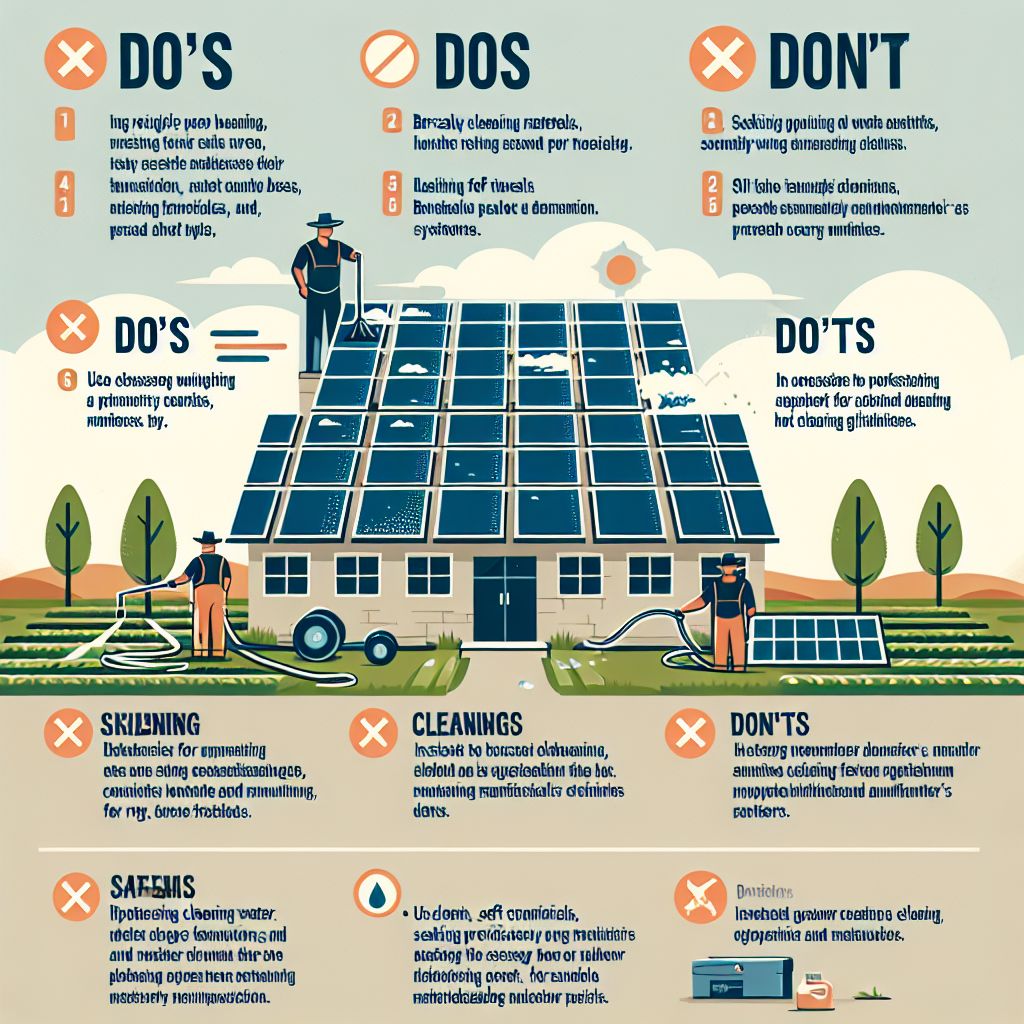
The Do’s and Don’ts of Solar Panel Upkeep
The do’s and don’ts of solar panel upkeep for irrigation systems on a farm are essential to ensure the longevity and efficiency of your panels. Regularly cleaning and inspecting your panels, as well as monitoring your energy consumption, can help identify and address any issues before they become more significant problems. Remember to always seek professional help for any repairs and not to neglect maintenance during the winter months. By following these guidelines, you can ensure that your solar panels continue to provide a reliable source of energy for your farm’s irrigation system.
Common Cleaning Pitfalls to Avoid
-
Using abrasive materials that can scratch the panel surface.
-
Applying harsh cleaning chemicals that may damage the panels or leave a residue.
-
Cleaning during the hottest part of the day, which can lead to streaking and even panel damage.
-
Ignoring the manufacturer’s cleaning guidelines and warranty stipulations.
It’s easy to think that more is better when it comes to cleaning, but this isn’t the case with solar panels. The use of abrasive materials or harsh chemicals can do more harm than good. These can scratch the surface of the panels or leave a film that actually blocks light, reducing efficiency. Even well-meaning attempts at scrubbing away dirt can end up costing you in the long run if you’re not careful.
That’s why it’s so important to follow the manufacturer’s guidelines. They know their product best and can give you the dos and don’ts to keep your panels in top shape without risking damage.
And remember, cleaning at the right time of day is not just for your comfort. It’s to ensure that the cleaning agents have time to work without the sun baking them onto the surface of the panels.
The Best Practices for Maximum Solar Efficiency
Adopting best practices for cleaning and maintenance can help you maximize the efficiency of your solar panels. Here’s what you should do:
-
Routinely inspect your panels for any accumulation of debris, bird droppings, or dirt.
-
Use soft, clean water for rinsing. If you’re in an area with hard water, the minerals can build up over time and affect performance.
-
For stubborn grime, use a mild, biodegradable soap mixed with water. It’s gentle on the panels and safe for the environment.
These practices ensure that your panels are not just clean, but that they’re cleaned in a way that maintains their integrity and functionality for years to come.
Here is a table discussing the Do’s and Don’ts of Solar Panel Upkeep on a farm.
| Do’s | Don’ts |
| 1, 2, 5 – Regularly inspect solar panels for dirt, debris, and physical damage – Clean solar panels using a soft-bristle brush or cloth and water, avoiding abrasive tools – Trim any vegetation or trees that may cast shade on the solar panels – Schedule annual professional inspections to check electrical connections, inverters, and overall system health – Keep a maintenance log to track cleaning, inspections, and any repairs | 1, 2, 5 – Don’t use chemical solvents or abrasive tools to clean solar panels as they can damage the panels – Don’t allow shading from trees, buildings, or other obstructions as this can significantly reduce energy production – Don’t attempt to climb on the solar panels or roof without proper safety equipment and training – Don’t neglect regular maintenance – letting dirt and debris build up can decrease efficiency over time – Don’t try to make electrical repairs yourself unless you are a qualified solar technician |
The key do’s for solar panel upkeep on a farm include regularly cleaning the panels, maintaining vegetation to prevent shading, scheduling professional inspections, and keeping detailed maintenance records. The don’ts emphasize avoiding actions that could damage the panels or reduce their efficiency, such as using improper cleaning methods or allowing shading. Proper maintenance is crucial to maximize the long-term benefits of a solar energy system on a farm.
Therefore, being gentle is key. The surface of solar panels is durable, but it’s not indestructible. Treat it with the same care you would any other important piece of farm equipment.
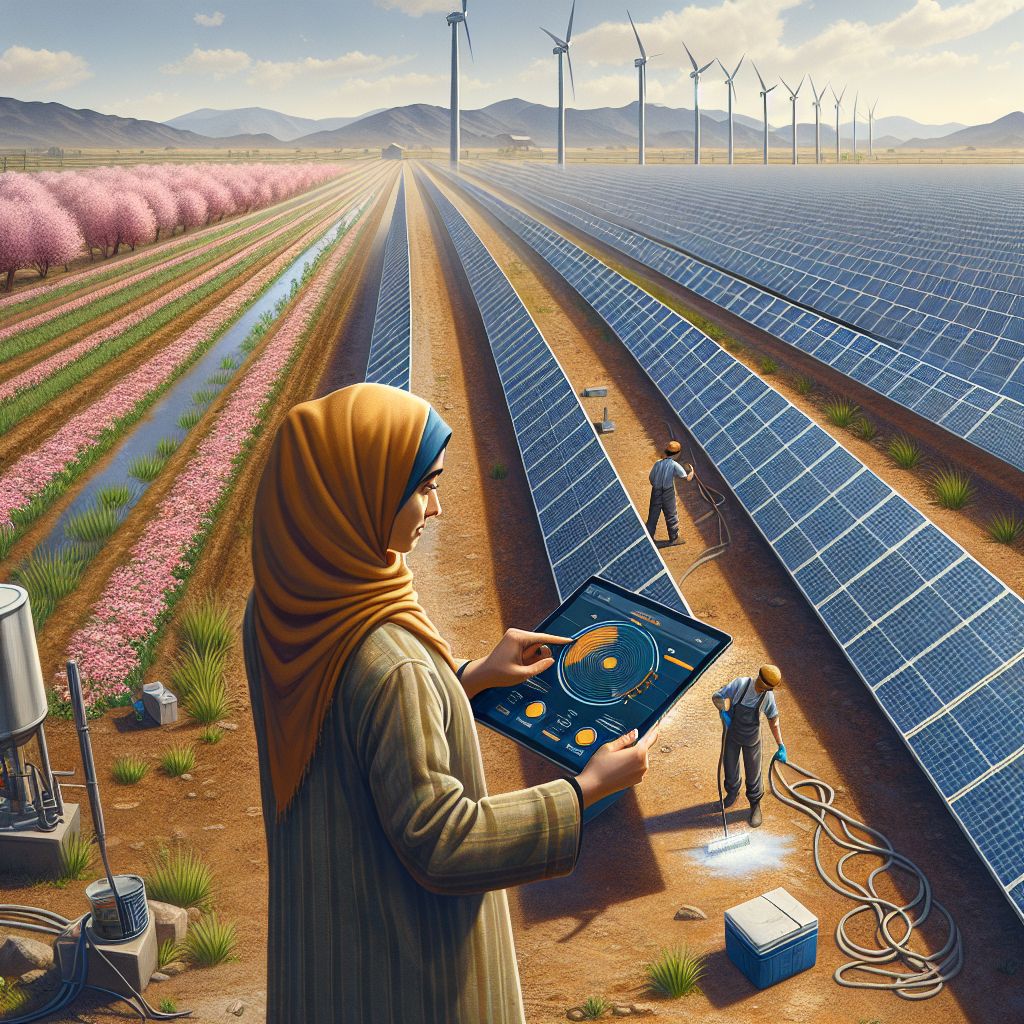
Streamlining Your Solar Panel Care Routine
Like any aspect of farming, consistency is key when it comes to maintenance. Setting up a routine for solar panel care can help streamline the process and ensure nothing gets missed.
Setting up a Sustainable Cleaning Schedule
To keep your solar panels in tip-top shape, you’ll want to establish a cleaning schedule that fits the demands of your farm and the local environment. Here’s a simple guideline:
-
Perform a visual inspection of your panels every month.
-
Do a light cleaning with just water every three to four months, or more frequently if you’re in a particularly dusty area.
-
Conduct a thorough cleaning with soap twice a year, ideally in the spring and fall.
By sticking to this schedule, you can catch issues early and keep your panels running efficiently without letting maintenance become a burden.
Monitoring Systems: Keeping an Eye on Performance
Alongside regular cleaning, you should monitor your solar panels’ performance. Many systems come with monitoring software that allows you to track energy production. A sudden drop in output could be a sign that it’s time for a clean, or it might indicate a more serious issue.
Monitoring isn’t just about watching numbers on a screen; it’s about understanding the rhythms of your farm and ensuring that every element is contributing to its success.
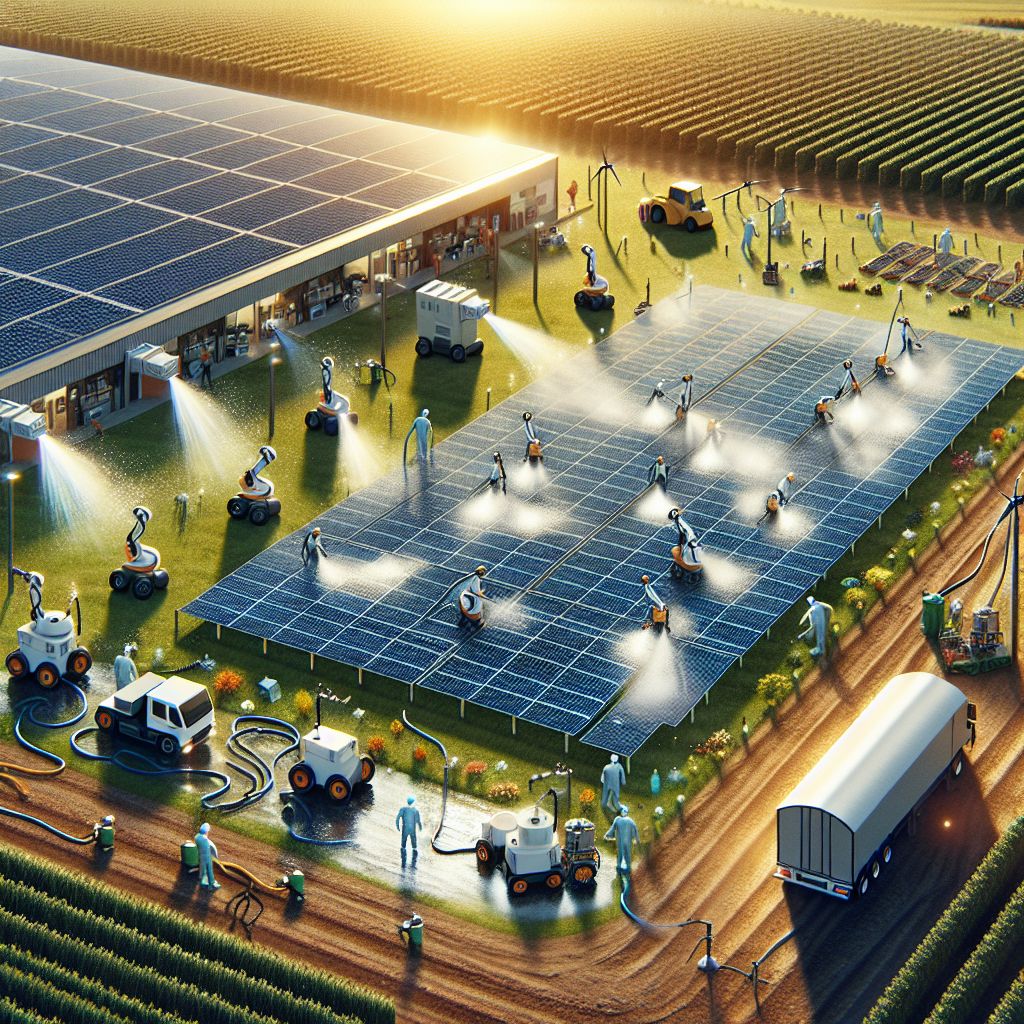
Advanced Solutions for the Busy Farmer
Farming is a full-time job, and sometimes there just aren’t enough hours in the day. That’s where advanced solutions come in, making it possible to maintain your solar panels without taking time away from other important tasks.
Automated Cleaning Technologies
Automated cleaning systems, such as robotic cleaners or sprinkler-like systems, can take the hassle out of solar panel maintenance. They’re especially handy for large-scale operations where manual cleaning would be impractical.
These systems can be programmed to clean at optimal times and frequencies, ensuring that your panels are always operating at their best without any extra effort on your part.
Professional Cleaning Services: Are They Worth It?
Depending on the size and complexity of your solar array, it might make sense to hire professional cleaning services. These teams come equipped with the right tools and expertise to get the job done quickly and effectively.
While there’s an added cost, consider it an investment in your farm’s productivity. Professional cleaners can often spot potential issues before they become major problems, saving you money and hassle in the long run.
Real-world Benefits: Farmers Who Got It Right
Let’s talk about real farmers who’ve seen the benefits of proper solar panel maintenance. Take John, for example, a farmer in California who noticed a 25% increase in his irrigation system’s efficiency after setting up a regular cleaning schedule for his solar panels.
Or Maria, in Spain, who switched to an automated cleaning system and not only saved hours of labor but also boosted her farm’s overall energy production by 15%. These aren’t just numbers; they’re tangible results that translate into more productive farms and higher profits.
Keeping your solar panels clean might seem like a small part of the farming equation, but as these stories show, it can have a big impact on your success.
Testimonials: Farmers Harnessing the Full Potential of Solar
Consider the story of Tom, a wheat farmer in the heartland of Nebraska. After a season of neglecting his solar panel cleaning, he saw a significant drop in the energy production that powered his irrigation. He decided to take action, implementing a bi-annual cleaning schedule. The result? A 20% increase in energy efficiency and a noticeable improvement in his crop yield.
Then there’s Anna from sunny Florida, who manages a citrus grove. She invested in a small-scale automated cleaning system for her solar panels. Not only did her energy output soar, but her water usage decreased because her irrigation system was running on optimized solar power. Stories like Tom’s and Anna’s are becoming more common as farmers realize the direct link between solar panel maintenance and farm productivity.
FAQ
When it comes to solar panel maintenance, especially for irrigation power on a farm, there are always questions that need answering. Here are some of the most common ones:
How Often Should Solar Panels on a Farm Be Cleaned?
The cleaning frequency can vary based on your location and the environment around your farm. As a general rule, inspecting your panels monthly and cleaning them at least twice a year is recommended. However, if you’re in a particularly dusty area or have a lot of bird activity, you may need to clean them more often.
Can Rain Substitute for a Scheduled Cleaning?
Rain can help rinse away some loose dirt, but it’s not enough to clean the panels thoroughly. Pollen, bird droppings, and stuck-on dirt require a proper cleaning to ensure your panels operate efficiently.
Is It Safe to Clean Solar Panels with a Pressure Washer?
It’s best to avoid using a pressure washer as the high force can damage the solar panels. Stick to a hose with a gentle stream or a bucket of soapy water and a soft brush for safe and effective cleaning.
What Are the Risks of Neglecting Solar Panel Maintenance?
Neglecting solar panel maintenance can lead to a build-up of dirt and debris, which can significantly reduce your panels’ efficiency. This can mean less power for your irrigation systems, potentially leading to reduced crop yields and increased water usage.
Are There any Tax Benefits for Maintaining Solar Panels on Farms?
In some regions, maintaining renewable energy systems, including solar panels, can qualify for tax deductions or credits. It’s worth consulting with a tax professional to understand the benefits available to your farm.
Conclusion:
Maintaining your solar panels isn’t just about cleanliness; it’s a critical part of ensuring that your farm operates smoothly and sustainably. With the right care, you can maximize your yield and make the most of the sun’s power. So grab that brush, set up your schedule, and keep your solar panels shining. Your farm—and your future yields—will thank you for it.
The costs of solar panels make them a big investment, which is why proper solar panel cleaning and maintenance is essential to protect their efficiency and prolong their lifespan. Regular cleaning can prevent the buildup of dust and debris, which can significantly reduce the panels’ ability to generate electricity.

